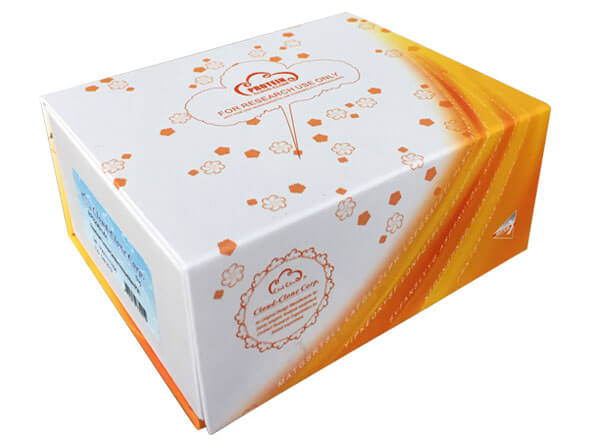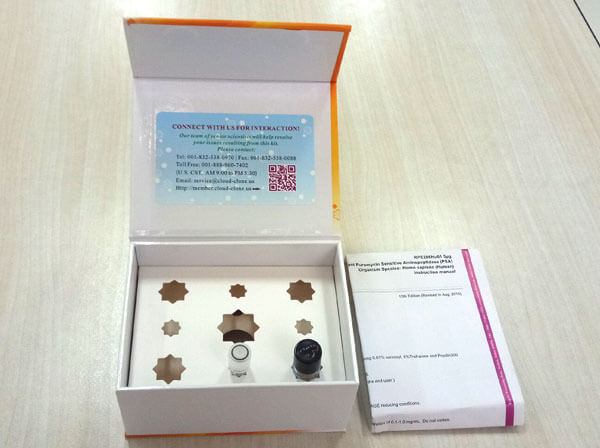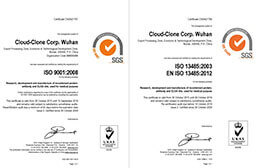Recombinant Small Nuclear Ribonucleoprotein 70kDa (SNRNP70)
Référence RPH160Hu02-50ug
Conditionnement : 50ug
Marque : USCN
Recombinant Small Nuclear Ribonucleoprotein 70kDa (SNRNP70)
RNPU1Z; RPU1; U170K; U1AP; U1RNP; Autoantigen U1-RNP
- Product No.RPH160Hu02
- Organism SpeciesHomo sapiens (Human) Same name, Different species.
- SourceProkaryotic expression
- HostE.coli
- Endotoxin Level<1.0EU per 1µg (determined by the LAL method)
- Subcellular LocationNucleus
- Predicted Molecular Mass17.3kDa
- Accurate Molecular Mass28kDa(Analysis of differences refer to the manual)
- Residues & TagsMet316~Glu437 with N-terminal His Tag
- Buffer FormulationPBS, pH7.4, containing 0.01% SKL, 5% Trehalose.
- TraitsFreeze-dried powder
- Purity> 90%
- Isoelectric Point4.5
- Applications Positive Control; Immunogen; SDS-PAGE; WB.
If bio-activity of the protein is needed, please check active protein. - Download Instruction Manual
- UOM 10µg50µg 200µg 1mg 5mg
SEQUENCE of the Recombinant Small Nuclear Ribonucleoprotein 70kDa (SNRNP70)

USAGE of the Recombinant Small Nuclear Ribonucleoprotein 70kDa (SNRNP70)
Reconstitute in 10mM PBS (pH7.4) to a concentration of 0.1-1.0 mg/mL. Do not vortex.
STORAGE of the Recombinant Small Nuclear Ribonucleoprotein 70kDa (SNRNP70)
Avoid repeated freeze/thaw cycles. Store at 2-8°C for one month. Aliquot and store at -80°C for 12 months.
STABILITY of the Recombinant Small Nuclear Ribonucleoprotein 70kDa (SNRNP70)
The thermal stability is described by the loss rate. The loss rate was determined by accelerated thermal degradation test, that is, incubate the protein at 37°C for 48h, and no obvious degradation and precipitation were observed. The loss rate is less than 5% within the expiration date under appropriate storage condition.







